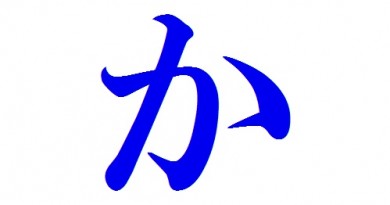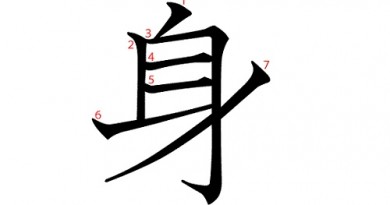Contents
Learn minna no nihongo lesson 31
3. Grammar
Verbs in form of showing intention, plan to do (Verbs in う/よう-form)
Group I :[ row う] becomes [row お]う
あるく → あるこう
あう → あおう
いそぐ → いそごう
Group II: Vる remove る and add よう → Vよう
たべる → たべよう
みる → みよう
Group III: add よう
しる → しよう
くる → こよう
Usage : It is a short way of saying ましょう
Example:
つかれたから、ちょっと やすまない?
Tsukareta kara, chotto yasumanai?
I’m tired, shall we rest for a while?
ええ、やすもう。
ee, yasumou
Yeah, let’s take a rest.
*Note: Whether you use plain or polite form, all clauses of a sentence must have the same form.
V (う/よう form) と 思っています。
Meaning : I think I will do V
Usage : Express intention of the speaker that is formed before speaking and still occurring.
Note :
~ 思います : Intention at the time of speaking
~ 思っています: Intention that is formed before speaking and still occurring.
Example :
今から銀行へ行こうと思っています
Ima kara ginkou he ikou to motte imasu.
I’m thinking of going to the bank from now on.
~Vる/ Vない + つもりです
Meaning : intend to do/ not to do something
Usage : Express a definitive intention. The meaning is similar to [と 思っています], but the degree of certainty about the intention will be higher when using [V (plain form) + つもりです].
Example :
友達と映画を見るつもりです。
Tomodachi to eiga wo miru tsumori desu.
I’m going to watch a movie with my friends..
朝ご飯を食べないつもりです。
asa gohan wo tabenai tsumori desu.
I am not going to have breakfast.
Vる / N の 予定です
Meaning : intend or plan to do something.
Usage : Describe the plan that has been prepared certainly before
Example :
8月の終わりに日本へ旅行する予定です。
8 gatsu no owari ni nihon he ryokou suru yote desu.
I’m planning to travel to Japan at the end of August.
まだ ~ Vていません。
Usage : describe things that haven’t arisen or haven’t been done at present.
Example :
銀行はまだ開いていません。
Ginkou ha mada aiteimasen.
The bank hasn’t opened yet.
4. Kaiwa
インタネットを 始めようと 思っています。
intanetto wo hajimeyo u to omotte i masu.
小川: 来月からどくしんです。
Ogawa: raigetsu kara doku shin desu.
ミラー: えつ?
Mira-: etsu?
小川: じつはおおさかの本しゃにてんきんなんです。
Ogawa: jitsuha oosaka no hon shanitenkinnandesu.
ミラー:本しゃですか。それはおめでとうございます。でも、どうしてどうくしんになるんですか。
Mira-: hon sha desu ka. sore ha omedetou gozai masu. demo, doushite dou kushin ni narun desu ka.
小川: つまとこどもは東京にのこるんです。
Ogawa: tsuma to kodomo ha toukyou ni nokorun desu.
ミラー: えつ。いっしょに行かないんですか。
Mira-: etsu. issho ni ika nain desu ka.
小川: むすこは来年大学の 入学試験が あるから, 東京に 残ると言うし 、妻も 今の会社をやめてくないというんです。
Ogawa: musuko ha rainen daigaku no nyuugaku shiken ga aru kara , toukyou ni nokoru to iu shi, tsuma mo ima no kaisha o yame te ku nai toiun desu.
ミラー:へえ。 べつべつに 住むんですか。
Mira-: hee. betsu betsu ni sumun desu ka.
小川: ええ。 でも 月に 2、3 回しゅうまつに帰る つもりです。
Ogawa: ee. demo tsuki ni 2, 3 kai shuu matsu ni kaeru tsumori desu.
ミラー: たいへんですね。
Mira-: taihen desu ne.
小川:でも 、 普通の 日は ひまですから.インターネットを はじめようと 思って います。
Ogawa: demo, futsuu no hi ha hima desu kara . intanetto wo hajimeyo u to omotte i masu.
ミラー: そうですか。 それも いいですね。
Mira-: sou desu ka. sore mo ii desu ne.
Translation :
I’m thinking of starting using the Internet.
Kogawa: I will be single from next month.
Miller: What?
Kogawa: Actually I am transferred to the head office in Osaka.
Miller: Head office? Congratulations. But why will you become single?
Kogawa: My wife and children will remain in Tokyo.
Miller: Eh, they won’t go with you?
Kogawa: My son will have the university entrance examination next year, so he said that he would remain in Tokyo, and my wife also doesn’t want to leave her current company.
Miller: Will you live separately?
Kogawa: Yeah. But I will go back home 2 or 3 times a month on the weekend..
Miller: It’s hard.
Kogawa: But I will be free on normal day, so I’m thinking of starting using the Internet.
Miller: Is that so. That’s good.
Please see the renshuu section on the next page.


